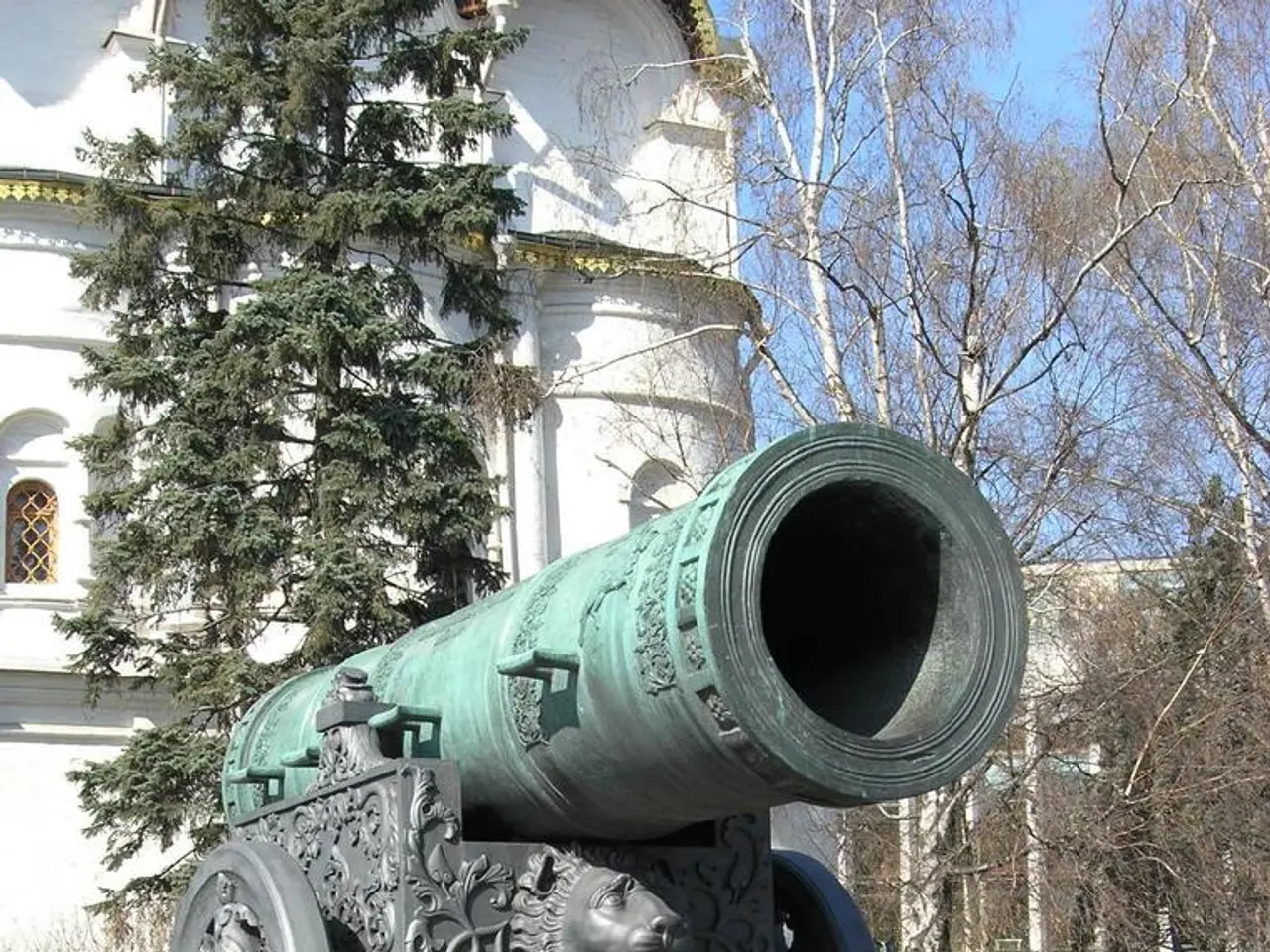Spain contributes minimally as a NATO member, according to Trump's assertion.
Trump Takes Aim at Spain's Defense Budget, Citing Low Spending
In a bold move, President Donald Trump has slammed Spain's defense budget, labeling it "paltry" following the Spanish government's obstruction in approving a new NATO plan to increase military spending to 5% of their GDP.
"NATO's dealing with Spain now. Spain has been stingy," Trump declared, adding, "Spain, much like Canada, has been known for their frugality when it comes to defense spending."
Trump, who's off to a NATO summit in The Hague on June 24 and 25, doubled down, questioning why countries like Spain should escape the burden when the U.S. has been footing the bill.
The looming NATO summit has increased tensions, coming amid escalating conflicts in the Middle East, notably between Iran and Israel.
NATO's 5% milestone and Trump's stance
Despite the U.S. delegation advocating for raising the defense spending of NATO allies to 5%, Trump has expressed reservations. He stated that pushing for the current threshold of 2% is "ludicrous" and viewed it as a financially viable option for all member countries.
"I believe they should," Trump said, referring to the 5% milestone. "However, I don't think we should. We've been funding NATO for a long time. In many cases, I think we're paying nearly the full cost."
Sánchez's Defensive Move Over Defense Spending
Spanish Prime Minister Pedro Sánchez opted to dodge the 5% defense spending target, proposing that the goal be optional or that Spain be exempted. This shift in strategy has raised eyebrows in international diplomatic circles.
While Spain's reluctance to meet NATO's defense spending target is a concern for Trump, the country's military contributions to NATO are substantial.
These contributions include command and control entities such as the High Readiness Land Headquarters and the High Readiness Maritime Headquarters, and the ability to generate an aerial entity.
Spain also hosts significant assets such as the Center of Excellence against Improvised Explosive Devices and the Tactical Leadership Program, demonstrating their commitment to NATO's objectives despite their reluctance to boost defense spending.
Spain's Balancing Act
While Spain's proposed exemption from NATO's defense spending target might suggest a lack of commitment, it's crucial to remember that their financial resources and perceived security threats play a significant role in this decision.
Spain's defense spending stands at around 1.3% of their GDP, one of the lowest among NATO members. Implementing such a drastic increase risks straining Spain's economy and public finances.
Moreover, Spain perceives Russia as less of an immediate threat, and thus prioritizes other commitments over defense spending. Despite this, Spain remains committed to European security.
This strategic move indicates a delicate balance between financial capabilities and security responsibilities, reflecting the recognition that not all NATO members can shoulder the same defense burdens.
In the context of the NATO summit, Trump's reservations about increasing defense spending to 5% among NATO allies, particularly for Spain, might be seen as a reflection of broader policy-and-legislation debates within war-and-conflicts and politics. Spain's proposed exemption from this target could also be interpreted as a general-news concern about maintaining a balance between financial resources and security responsibilities, highlighting the diverse dynamics of the conflict-ridden world.






